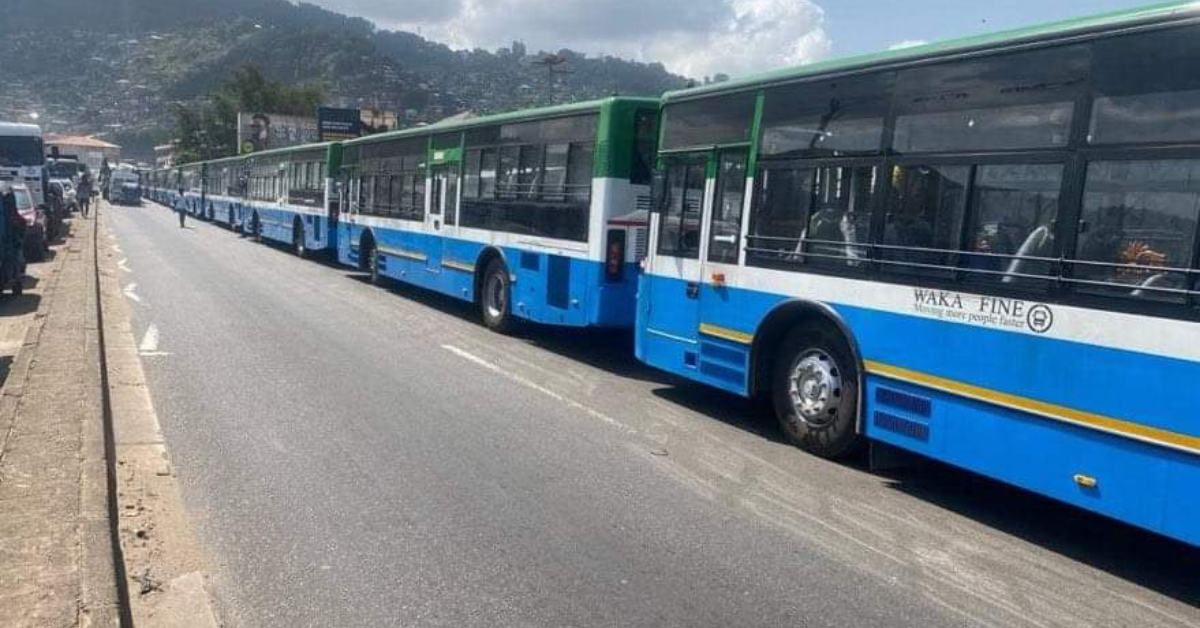Six months after the launch of the Waka Fine bus service, public frustration is growing as operational issues plague the project.
Out of the 50 buses introduced to ease the capital’s transportation woes, only 44 remain in service. Five buses have been grounded due to damaged windscreens, while one bus is still awaiting delivery from India.
The buses were introduced under the US$50 million World Bank-funded Integrated and Resilient Urban Mobility Project (IRUMP) aimed at improving public transportation in Freetown. However, delays in replacing damaged windscreens and the final bus’s arrival have raised concerns over the project’s effectiveness.
Hindolo Shiaka, Director of the Transport Infrastructure and Development Unit at the Ministry of Transport, confirmed that the damaged buses are parked at Cockerill, with no clear timeline for the delivery of replacement parts or the arrival of the outstanding bus.
Adding to the challenges is a reported dispute between Metro Transport Company, the private entity managing the buses, and the Sierra Leone Public Transport Authority (SLPTA), the body overseeing the project. Tensions have emerged over ticketing and revenue management, further complicating the smooth operation of the service.
Commuters, who have been relying on the buses to alleviate Freetown’s longstanding public transport issues, have expressed frustration at the ongoing delays. Their concerns have been echoed by Taslima Jah, Director of Budget at the Ministry of Finance, who recently revealed that the World Bank has raised alarms over the slow progress of the project. Jah also indicated that an extension of the project timeline is unlikely, intensifying worries about the project’s future.
As the situation remains unresolved, the Waka Fine bus service—touted as a solution to Freetown’s transportation crisis—faces an uncertain path forward.











